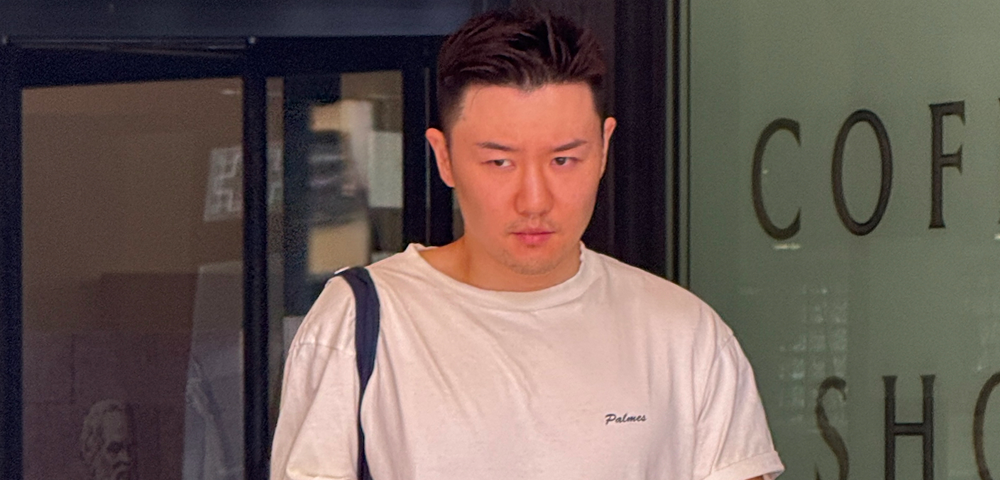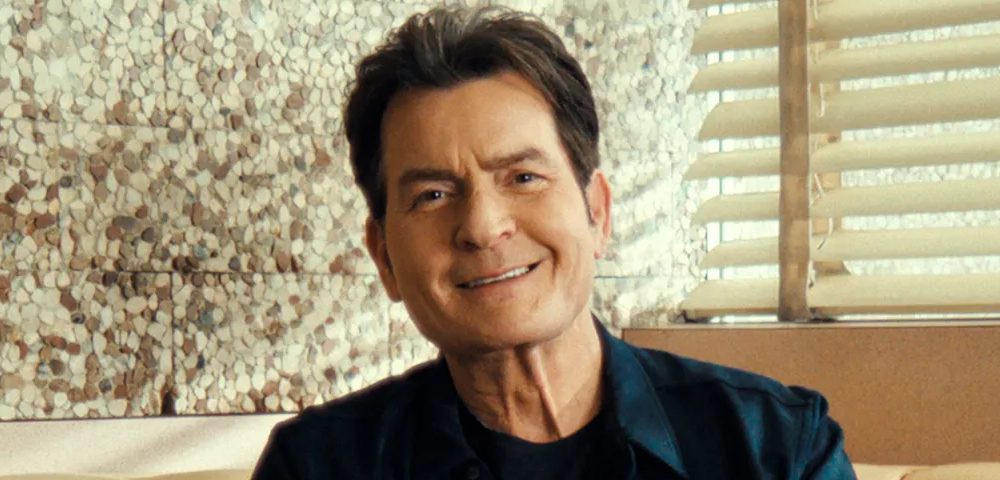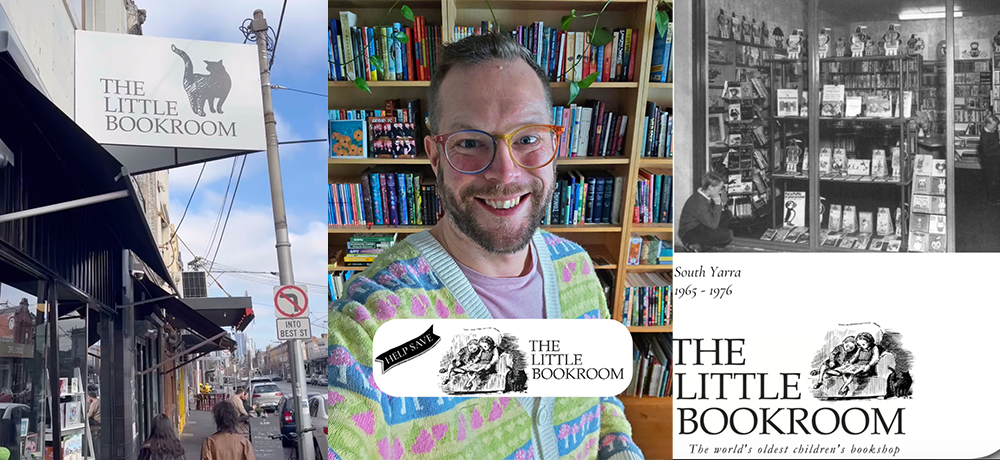
Star Observer Weekly Wrap-Up
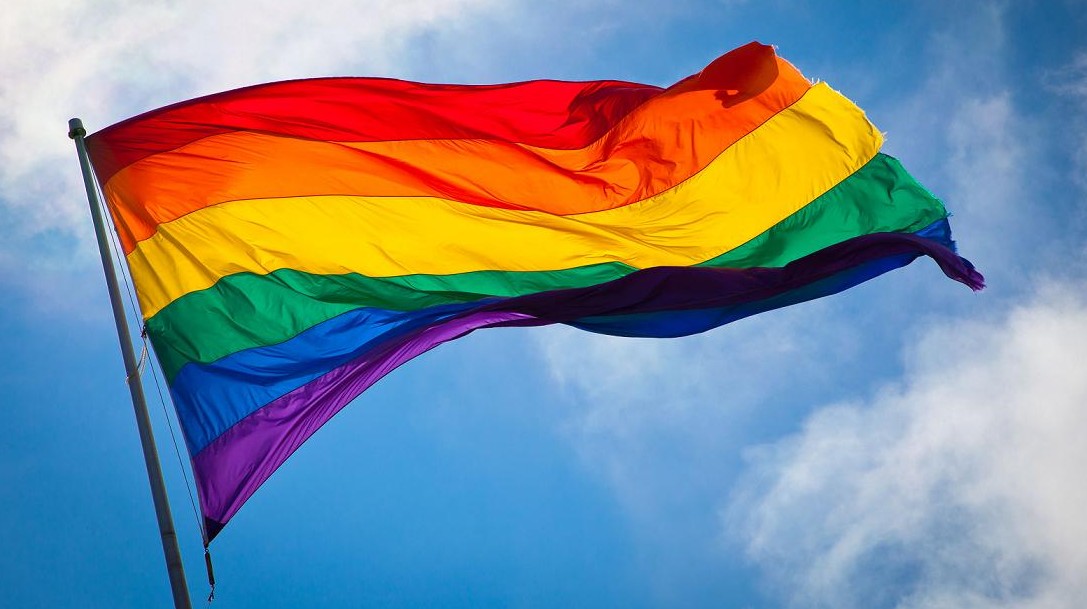
30 YEARS SINCE HOMOSEXUALITY WAS DECRIMINALISED IN NSW
TODAY marks 30 years since the decriminalisation of homosexual sex was passed through NSW Parliament on May 22, 1984.
The NSW Gay and Lesbian Rights Lobby reflected on the anniversary, looking back at how far the state and the country have come on issues affecting LGBTI people.
“It is remarkable to think that within a generation, we have gone from criminals to a situation today where we are on the verge of legislative equality for gay and lesbian people and their families,” NSW GLRL co-convenor Justin Koonin told the Star Observer.
“People like Lex Watson and Robert French led the way, but there were many others, and we can be incredibly grateful for the courage and conviction they showed.” | Read more
_____________________________________________________________________________________________________________________
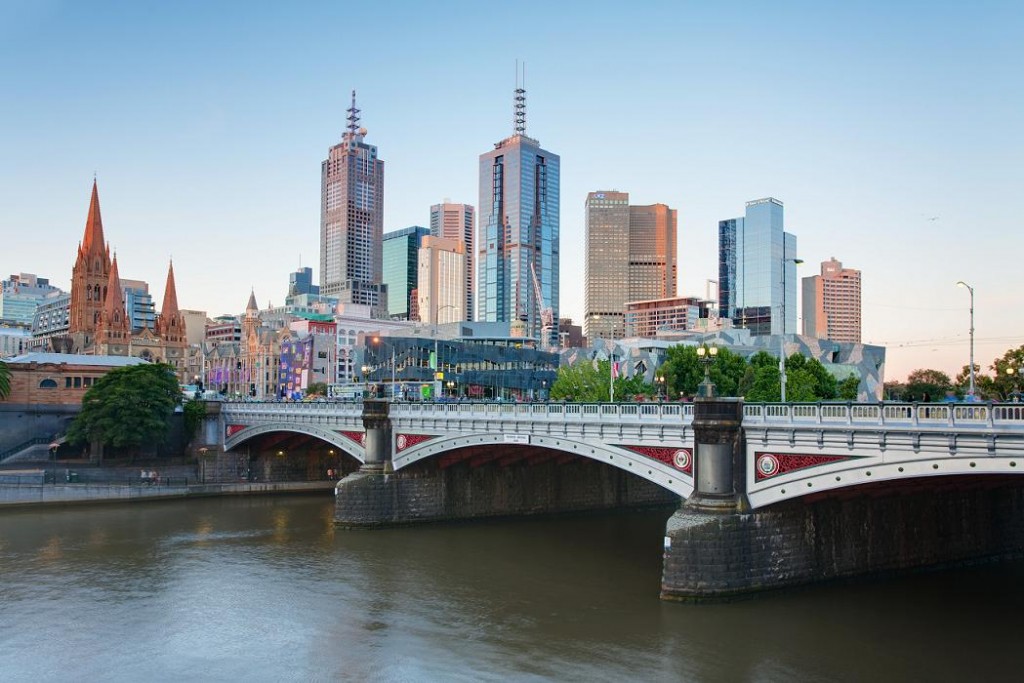
MELBOURNE DECLARATION CONDEMNS STIGMA AND DISCRIMINATION AGAINST THOSE AFFECTED BY HIV
WITH just two months until the International AIDS Conference (AIDS 2014) in Melbourne, organisers have released the Melbourne Declaration, calling for an end to stigma and discrimination against those affected by HIV.
The declaration outlines the stigma and criminalisation faced by many, arguing it is a key barrier to an effective global response to HIV.
“We express our shared and profound concern at the continued enforcement of discriminatory, stigmatising, criminalising and harmful laws which lead to policies and practices that increase vulnerability to HIV,” the declaration states.
“These laws, policies, and practices incite extreme violence towards marginalised populations, reinforce stigma and undermine HIV programmes, and as such are significant steps backward for social justice, equality, human rights and access to health care for both people living with HIV and those people most at risk of acquiring the virus.” | Read more
_____________________________________________________________________________________________________________________
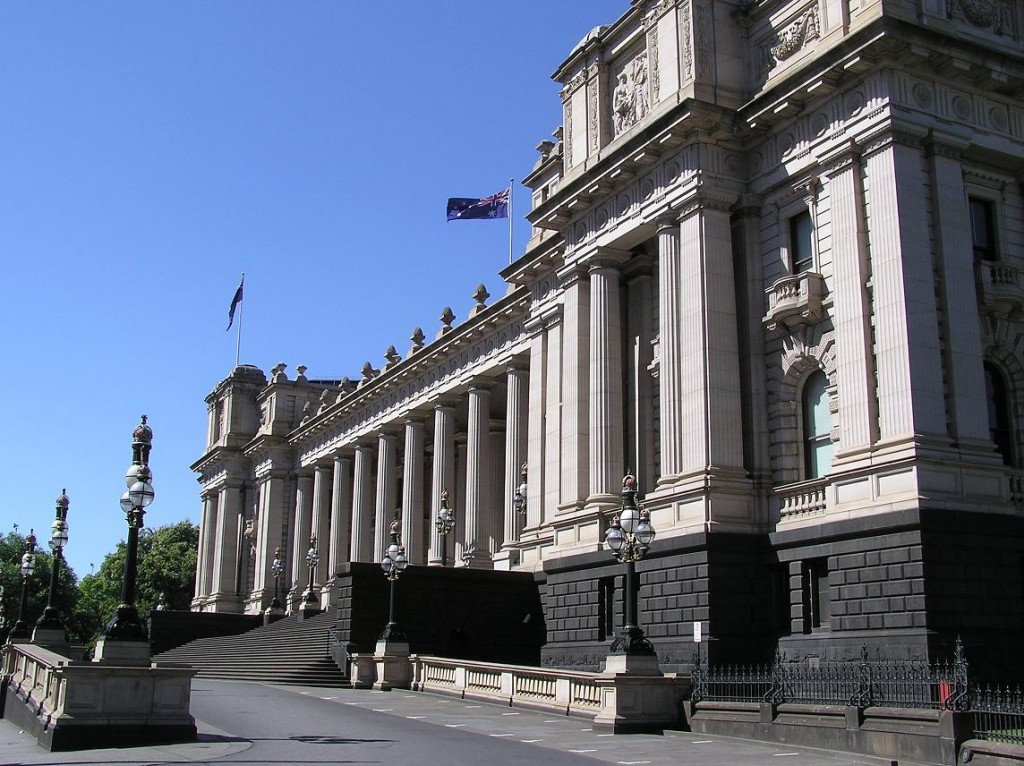
SAME-SEX ADOPTION REFORM ON THE AGENDA IN VICTORIA
VICTORIAN Labor have voted in favour of a platform including a range of LGBTI-related reforms at the state conference over the weekend, including legalising same-sex adoption in Victoria.
Delegates also voted to endorse reform to documentation laws to allow greater recognition for trans* and intersex Victorians, rolling the Safe Schools Coalition out to all Victorian public schools, and dedicated housing assistance for LGBTI people at risk of homelessness, among other issues.
A change to Victorian law to legalise same-sex adoption would bring Victoria into line with NSW, Western Australia, Tasmania and the ACT.
Victorian Labor spokesperson on LGBTI equality Martin Foley argued the newly-endorsed position on same-sex adoption was a highlight of the platform and supported unanimously | Read more
_____________________________________________________________________________________________________________________
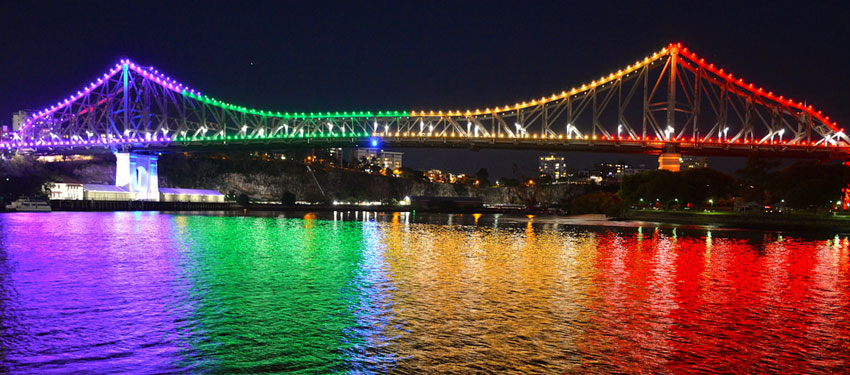
BRISBANE’S STORY BRIDGE SHINES IN RAINBOW FOR IDAHOT
FORECASTED rain did not deter Brisbane spirits during International Day Against Homophobia and Transphobia (IDAHOT) last Saturday, with the city celebrating an Australian first: the lighting of its main bridge in rainbow colours.
The Queensland capital’s iconic Story Bridge was lit in the colours of the pride flag (pictured above) to commemorate IDAHOT, marking the first time the bridge’s colourful LED lights were used for an LGBTI event.
PICTURE GALLERY: Story Bridge lights up for IDAHOT
The bridge lighting was also the only one of its kind in Australia.
A key figure in organising the colourful light display, Brisbane councillor Vicki Howard was on hand and celebrate the occasion on the riverside with fellow Cr Victoria Newton | Read more
_____________________________________________________________________________________________________________________
STATE OF THE NATION REPORT WILL SUPPORT AND DRIVE AUSTRALIA’S LGBTI AGENDA
LAST week, Australian Human Rights Commissioner Tim Wilson announced a State of the Nation report into issues facing LGBTI Australians as part of a range of initiatives from the commission on LGBTI rights.
The Star Observer spoke to the Human Rights Commission to find out what the report would involve, and other work the commission was doing around LGBTI Australians.
Speaking at the Darwin Outgames human rights forum, Wilson said the report would gather information on services and programs currently supporting LGBTI Australians to identify gaps and overlap across the country. Personal stories collected on a listening tour to be led by Wilson later this year would comprise part of the report.
The Human Rights Commission’s senior policy advisor on LGBTI issues Siri May told the Star Observer the report would be an overview of the past and present for LGBTI Australians | Read more
_____________________________________________________________________________________________________________________
RED CROSS BLOOD SERVICE PRAISES LGBTI EMPLOYEES AMIDST BLOOD BAN CONTROVERSY
MEMBERS of the Australian Red Cross Blood Service’s LGBTI employee network have created a video in support of the It Gets Better campaign, affirming the organisation’s support amidst a reignited community debate over the ban on gay men giving blood.
In the video, Blood Service employees discuss their coming out process and the homophobia many of them experienced growing up. The emotional stories come from people across the organisation, with each explaining the ways their lives had become better.
The Blood Service has again been thrust into the LGBTI community spotlight over the past week, with renewed calls for the deferral period for gay men donating blood to be reduced or moved. Men who have had sex with men within the past year are currently unable to donate blood in Australia | Read more
_____________________________________________________________________________________________________________________
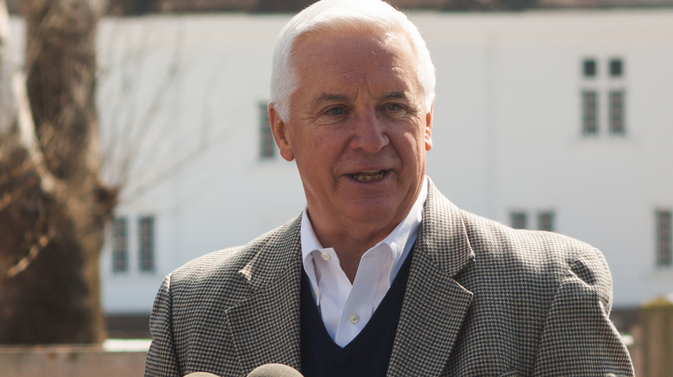
PENNSYLVANIA GOVERNOR TOM CORBETT STOPS COURT BATTLE AGAINST GAY MARRIAGE
THE governor of Pennsylvania has put a stop to his fight to keep the ban on same-sex marriage in the US state, despite his personal opposition.
Governor Tom Corbett’s decision comes just a day after US District Court Judge John E Jones III struck down Pennsylvania’s same-sex marriage ban on Tuesday.
Corbett (pictured above), a Republican and practicing Roman Catholic, highlighted that despite his personal beliefs, the decision to halt his court appeal to keep his state’s ban on same-sex marriage was a political one.
“The case is extremely unlikely to succeed on appeal,” Corbett said in a statement yesterday | Read more
_____________________________________________________________________________________________________________________
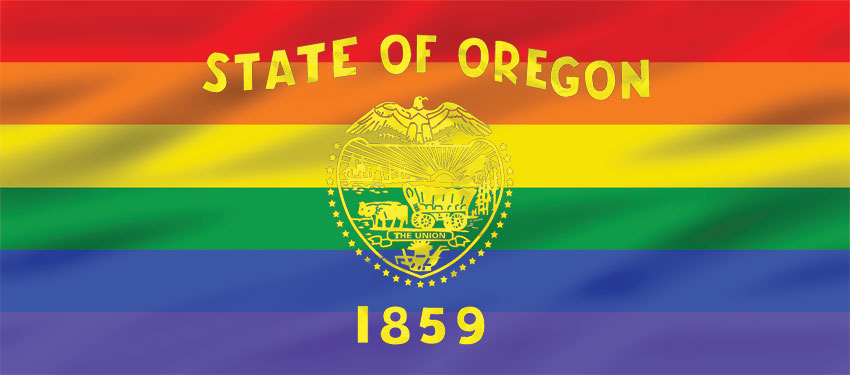
OREGON BECOMES LATEST US STATE TO ALLOW GAY MARRIAGE
OREGON has become the latest US state to award all of its couples equal access to marriage rights, just days after Arkansas’ highest court called a halt to the issue of marriage licences to gay couples.
A federal judge in Oregon struck down the state’s ban on same-sex marriage yesterday, making it the 13th consecutive win for gay nuptials in the federal courts since the US Supreme Court struck down the Defense of Marriage Act (DOMA) last year, in addition to state courts in New Jersey and New Mexico.
According to the Washington Blade, US District Judge Michael McShane ruled in the case of Rummell vs Kitzhaber and Geiger vs Kitzhaber that Oregon’s ban on same-sex marriage violated the 14th Amendment of the US Constitution, which has equal protection rights | Read more
_____________________________________________________________________________________________________________________
OPINION – PREJUDICE FUELS THE DENIAL OF RIGHTS FOR LGBTI PEOPLE WORLDWIDE: UN HUMAN RIGHTS COMMISSIONER
RECENTLY, new laws have been adopted to punish, or silence, lesbians and gays in a number of countries. Such laws, and the resulting discrimination — which often affects transgender people too — violate universal human rights.
Last month, thousands of Ugandans joined a “celebration” of the country’s new Anti-Homosexuality Act, which punishes gays and lesbians with life in jail and cracks down on human rights organisations that defend them. In January, Nigeria’s president signed new legislation that punishes same-sex unions with up to 14 years in jail. They are among at least 77 countries that criminalise homosexuality. Five — including Saudi Arabia and Iran — prescribe the death penalty for adult, consensual homosexual relationships.
In several countries in eastern Europe and Central Asia, MPs have recently called for laws to punish any attempt to present “non-traditional” — and specifically, homosexual — relationships in a positive light, restricting freedom of expression and assembly. In both Kenya and the Democratic Republic of Congo, MPs have called for severe anti-homosexuality legislation. Brunei’s new penal code, which is due to take effect shortly, prescribes the death penalty for consensual same-sex conduct. In February, during a televised speech to commemorate the country’s independence, the Gambian President called for the country to fight homosexuals “the same way we are fighting malaria-causing mosquitoes, if not more aggressively.” | Read more
_____________________________________________________________________________________________________________________
OPINION – WHERE’S THE LGBTI EQUIVALENT OF SECTION 18C?
ONE of the major political debates during March and April this year concerned vilification laws, specifically whether Commonwealth Attorney-General George Brandis’ proposed reforms to section 18C of the Racial Discrimination Act were justified, or whether they unnecessarily restricted existing protections against racial vilification.
The undeniable size and impact of Australia’s racism issue obviously makes the question of how to deal with race-based vilification an important one to consider. This means it is difficult to begrudge the significant coverage devoted to this policy issue in recent months.
However, from this activist’s point of view, it did seem like something was missing from the debate — five letters in particular. If we are going to seriously discuss amending racial vilification protections, I believe we should also be talking about remedying the complete lack of vilification protections for LGBTI Australians under Commonwealth law | Read more






